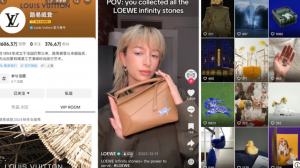With its landmark partnership with Tencent Interactive Entertainment Group, Universal Studios Beijing is set to integrate popular IPs from Honor of Kings to Peacekeeper Elite into its programming.

When Universal Studios broke ground on a Beijing theme park in 2016, it revealed seven themed zones comprising the 1,000-acre property. From “picking up fighting techniques” at the Kung Fu Panda Land of Awesomeness to “following in Harry’s footsteps” at The Wizarding World of Harry Potter, Universal promised to deliver experiences from the world’s most beloved movie franchises to Chinese audiences. Intellectual property (IP), it seemed, was not something the American entertainment giant was lacking.
Less than six months before the $3.3 billion project was set to welcome visitors, however, Universal announced a long-term licensing partnership with Tencent Interactive Entertainment Group, the gaming department of the Chinese technology giant.
Initially, at least, the deal centers on seasonal events with Tencent promising to integrate IP from popular titles including Honor of Kings, Peacekeeper Elite, and QQ Speed across digital interactions, stage performances, and themed retail opportunities. The agreement not only evidences mutual ambition between Universal Studios and Tencent, but more broadly, the emerging offline presence of e-sports and gaming in China’s entertainment and travel sectors.
Here’s the context and significance behind the agreement between China’s biggest game publisher and one of the world’s largest theme park operators.
The context
Driven by rising leisure spending, China’s theme park industry is in the midst of a boom with an average of 35 theme parks opening per year since 2014. In 2019, the sector neared $50 billion in revenue and though domestic companies such as OCT Group currently prop up such figures, international players, including Six Flags and Legoland, have announced Mainland projects. The hope is to emulate the success of Disneyland Shanghai which received 11.2 million visitors in 2019.
At the same time, with more than 700 million gamers spending an estimated $40 billion last year, China’s gaming industry is unrivaled in size and revenue generation. The sector is increasingly capitalizing on its popularity by moving into offline opportunities. This includes crossover products — cosmetic brand M.A.C., for instance, created lipsticks alongside King of Glory — and developing large offline e-sports venues that offer a range of entertainment opportunities. Continue to read the full article here





